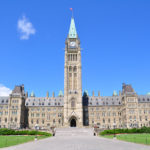The Trans Pacific Partnership (TPP) agreement is a broad “next generation” international trade and investment agreement that is being negotiated behind closed doors. TPP is not primarily about trade, but is a broad agreement that aims to change Canadian public policy without domestic debate. As such, the Canadian Labour Congress continues to work with other TPP nation labour centrals, international trade unions, and other allies on this important issue.
The twelve nations currently negotiating the TPP are the US, Japan, Australia, Peru, Malaysia, Vietnam, New Zealand, Chile, Singapore, Canada, Mexico, and Brunei Darussalam.
Canada and Mexico were allowed to join TPP talks in 2012, after 15 rounds of negotiations had already taken place. Japan joined the talks in 2013.
The details of the Trans Pacific Partnership (TPP) agreement continue to be shrouded in secrecy. From the information that is publicly available, most of it from WikiLeaks, it appears that access to medicines would be jeopardised, financial stability and regulation making would be undermined, useful public policy space severely diminished, and online data privacy and security would be infringed upon.
For example, the leaked draft of the intellectual property rights chapter shows that governments are negotiating to institutionalise a regime of unprecedented protection for patents, including on medicines. This will make access to drugs unaffordable for many people and public authorities.
It also appears that public procurement at all levels will be severely constrained. This would limit the ability of governments to prioritise criteria relating to public policy aims, such as job creation, environmental protection, and human and workers’ rights, when awarding contracts for procurement.
TPP negotiators are pressuring governments to grant market access in public services and utilities. We believe that will jeopardise the quality of and public access to such services.
The leaked version of the services chapter includes a series of restrictions on governments’ powers to regulate the financial sector. International trade deals were behind previous financial deregulation in the United States, which sparked the last recession and proved to be disastrous to the international economy.
Having been locked out of negotiations, trade unions from the TPP countries have called on governments to adopt a labour chapter that includes high labour standards and effective enforcement mechanisms, as well as several innovations.
The CLC stands with trade union centrals in the countries of the TPP, who have urged their governments to work for a new international trade and investment framework that has, at its core, the promotion of higher labour standards, high-quality jobs, and sustainable economic development. We too believe that we cannot afford another agreement giving priority to investor rights over the rights of workers and their aspirations to decent work and decent lives.
The CLC has asked the Federal Government to conduct full hearings at the International Trade Committee, followed by a full debate in Parliament. We believe the government should issue a call for an independent impact assessment informed by broad stakeholder debate and consultation which would assess the implications of the proposed TPP on the economy, jobs, poverty, gender, human rights, culture, and the environment—in Canada and in the participating countries of the Pacific Rim.
We have seen no evidence of government action to ensure that TPP works for Canadians and not simply for multi-national corporate interests. In fact, large corporations have full access to negotiations and the proposed texts, while opposition legislators and civil society actors have been shut out of the process in all TPP countries.
As such, the Canadian Labour Congress continues to work with TPP nation labour centrals, international trade unions, and other allies on this important issue. We support the work of researchers who are using the best information available to evaluate the impacts of leaked TPP documents.
According to all the information available, TPP is not the trade enhancing set of negotiations the Canadian government makes it out to be. It is an agreement that aims to change Canadian public policy without domestic debate. That should be unacceptable to all of us.






